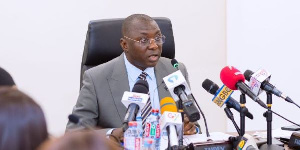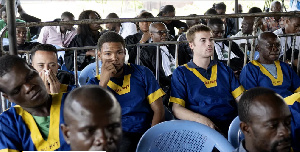Regional News of Friday, 22 April 2022
Source: GNA
Be interested in sexual reproductive health, rights issues – Journalists urged
Journalists have been encouraged to develop an interest and be abreast with Sexual Reproductive Health and Rights (SRHR) to churn out reports to address challenges confronting the growth and development of young people.
Mr. Albert Apotele Nyaaba, Project Officer, Youth Harvest Foundation Ghana (YHFG) who made the call stated that when media practitioners prioritise issues of SRHR, it would influence society positively and boost the country’s efforts towards the attainment of the Sustainable Development Goals.
It would also influence policy direction towards the mainstreaming of harmonised sexual and reproductive health education into the school curriculum to provide young people with accurate information to help them make informed decisions regarding their sexuality.
Mr. Nyaaba made the call at Bolgatanga, Upper East Region during a training organised by YHFG for selected journalists in the region and North East Region on SRHR.
The training was part of its advocacy drive dubbed, “School Health and Education Advocacy Project (SHEAP)” being funded by the Swedish Association for Sexuality Education (RFSU), a Swedish-based non-profit organisation.
The goal of the project is to produce data and evidence to support the government through the Ministry of Education and the Ghana Education Service to adopt and roll out an integrated adolescent health education curriculum in schools.
The training was to build the capacities of journalists to fully understand, appreciate and prioritise issues of adolescent sexual reproductive health and rights and report accurately to support the advocacy drive.
He said SRHR continued to be a national development issue that needed the effort of all stakeholders and bemoaned the incessant increase in teenage pregnancy, child marriage, and unsafe abortion among others in the region, posing risks to the development and growth of young people.
“After the COVID-19 school closure, the Ghana Health Service turned out data that indicated that in 2021, we had huge numbers of young people from 10 to 19 years including those from 10-14 years who were minors getting pregnant and Upper East Region has happens to be one of the region young people get pregnant a lot,” he added.
Statistics from the District Health Information Management System of the Ghana Health Service indicated that in the first quarter of 2021, the region recorded 1,639 pregnant cases and 5,534 cases recorded in the first 10 months of 2021.
In 2020, the country recorded 109,888 teenage pregnancies (10-19 years) were recorded in the country, and out of the 18,928 people who had infections including Sexually Transmitted Infections and HIV/AIDS, in 2020, 5,211 were young people.
This, the Project Officer, underscored the vital of role of the media in influencing national discussion to ensure that the right sexuality education was provided to young people through a harmonised system for the schools to address the challenges.
“In view of this, it is very proper to get young people educated on issues of sexual and reproductive health to get them empowered to be able to make informed decisions regarding their sexuality and the best way to go is to work with the journalists that they will be able to report the SRHR issues in perspective for the public to appreciate,” he added.











